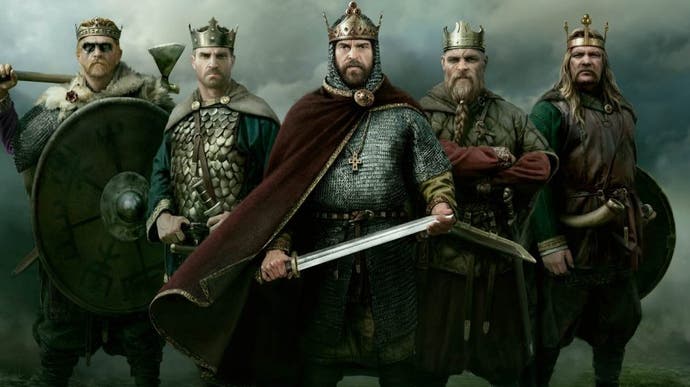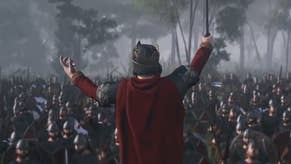Total War Saga: Thrones of Britannia review - Creative Assembly returns to historical warfare with mixed results
Norse and easy.
The year is 878AD and the Vikings have already invaded. A brief truce has now settled across the British Isles, but there's too much bad blood here for the Norsemen to coexist with those they've so recently conquered. This isn't peace, it's half-time.
And that's where Thrones of Britannia begins, as you decide which side of this conflict you want to lead: will you be at the head of an English Kingdom or the Great Viking Army? Or perhaps neither. Perhaps you'd prefer a smaller faction; one that can benefit from all this chaos. To some, the Vikings aren't a threat, they're a potential ally. It's an interesting setup for a campaign: the big invasion has already happened. What comes next?
As the first of the Total War 'Sagas', Thrones of Britannia looks to hone in on a much smaller timeframe than we're used to seeing from this series, with a typical campaign lasting just a few decades.
This has allowed Creative Assembly to absolutely nail the detail of this particular era, with one of the most well-realised campaign maps I've seen in a Total War game. It's bigger than you'd expect too, comparable in size to the Attila campaign, despite that game having needed to cram in an entire continent.
Each turn in Thrones of Britannia represents a single season, ensuring the rate of progress, in all things, is slowed way down. This is best demonstrated by the armies themselves, which will typically rely on the same selection of units throughout your campaign, with just a few available upgrades.
The way in which you recruit these units has been overhauled too. Whereas in other Total War games you'll spend a turn or two waiting for a unit to arrive at full strength, here you immediately add them to your army, but they'll arrive at quarter strength. This reflects the idea that in 878AD, soldiers were mustered from the surrounding area and this process took time. Armies didn't just pop into existence.
From a strategic point-of-view, this also presents a big risk for the player. These units you've just spent your hard-pillaged gold on are going to be extremely easy to defeat for the next several turns as you wait for them to, quite literally, flesh out. That might not be an issue with some of the cheaper units, but the more elite soldiers are really expensive and there are some serious limitations on how often they can be recruited.
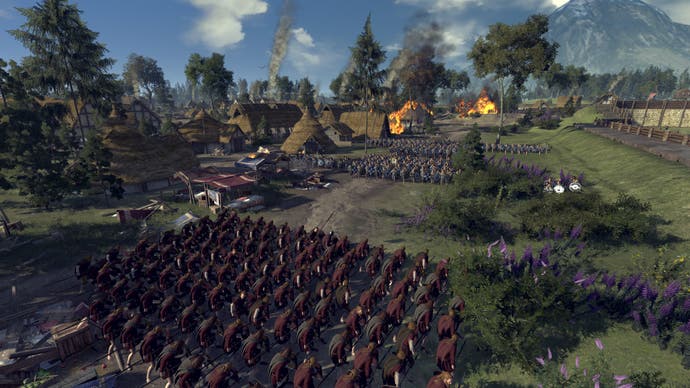
This all contributes to the feeling that losing an army can be catastrophic, not just in terms of gold (which is replaced fairly easily in the mid to late game), but in terms of time. Building armies that consist of only top-tier units is more unrealistic than ever and so the better play is usually to spread those soldiers (which are recruited from a global pool) across all of your armies and then surround them with peasants holding spears. Listen, it wasn't a great time in human history. I'm just being practical.
The battles themselves take a bit of getting used to, largely because the classic rock-paper-scissors approach we've become used to in Total War is a bit off. There are no proper heavy cavalry options in Thrones of Britannia and so battles are decided, more than ever, by strong lines of infantry. In fact, a cavalry unit attempting to charge into a shield wall will falter at the last moment and lose any charge bonus they might have hoped for. Suddenly the relationship between infantry and cavalry is skewed.
Combine this with the fact that there really isn't a huge difference between the types of units available to each faction and you lose a lot of the variety offered by other Total War games. I found that my approach to strategy was sometimes influenced by the terrain (Ireland has so many trees), but the composition of the opposing force rarely changes dramatically. It's all about infantry.
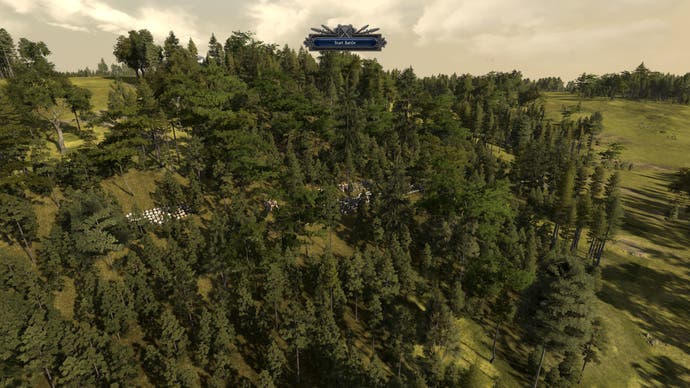
The sieges are a definite highlight, with some incredible, bespoke battle maps featuring multiple walls and killing grounds to take advantage of. It's a useful reminder that we've really started to miss this in Total War: Warhammer, which offers a much more linear approach to attacking or defending a city.
But really, that comparison to Creative Assembly's other Total War series is something I found difficult to ignore throughout my time with Thrones of Britannia. This game is running on a modified version of the engine used in 2015's Total War: Attila and it's starting to creak a little.
I didn't realise until now how much I've been spoiled by the clarity offered by Warhammer and Warhammer 2. On both the campaign and battle maps, Saga's stablemates do a much better job of conveying information to the player. Simple things like the border lines of your territory can be difficult to parse and I found that I needed to over rely on the strategic map as a result. Also, with all of the factions using such similar units, I feel like Thrones of Britannia could have done more to differentiate between opposing units during combat.
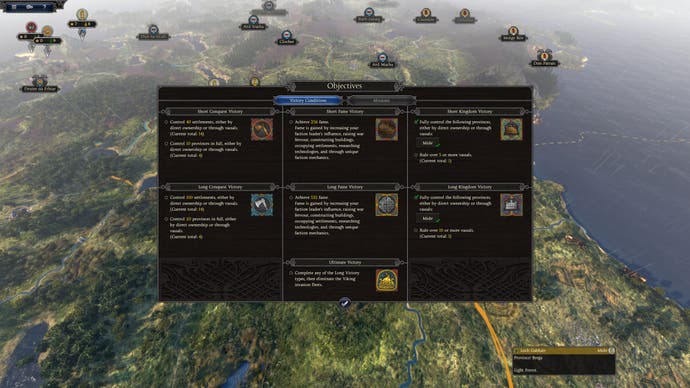
It's a real treat to be able to return to a historical Total War game after a couple of years spent with Warhammer fantasy, but it's a shame to lose some of the improvements those games have since been able to offer.
Thrones of Britannia is a great proof of concept for the Total War Saga experiment. It shows that taking a smaller period of history and then doubling down on the detail can totally work for this series, but at the same time, it's hard not to compare this to the core Total War titles. The battles aren't as varied or as interesting as those you'd find in the bigger games with their vastly different faction designs and the presentation feels a bit dated now when compared to Warhammer.
